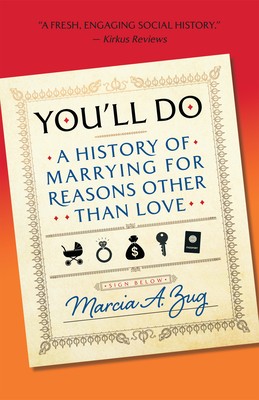
- We will send in 10–14 business days.
- Author: Marcia A Zug
- Publisher: Steerforth Press
- ISBN-10: 1586423746
- ISBN-13: 9781586423742
- Format: 15 x 22.6 x 3.3 cm, kieti viršeliai
- Language: English
- SAVE -10% with code: EXTRA
Reviews
Description
An illuminating and thought-provoking examination of the uniquely American institution of marriage, from the Civil War-era through the #MeToo age Perfect for fans of Rebecca Solnit and Rebecca Traister Americans hold marriage in such high esteem that we push people toward it, reward them for taking part in it, and fetishize its benefits to the point that we routinely ignore or excuse bad behavior and societal ills in the name of protecting and promoting it. In eras of slavery and segregation, Blacks sometimes gained white legal status through marriage. Laws have been designed to encourage people to marry so that certain societal benefits could be achieved: the population would increase, women would have financial security, children would be cared for, and immigrants would have familial connections. As late as the Great Depression, poor young women were encouraged to marry aged Civil War veterans for lifetime pensions. The widely overlooked problem with this tradition is that individuals and society have relied on marriage to address or dismiss a range of injustices and inequities, from gender- and race-based discrimination, sexual violence, and predation to unequal financial treatment. One of the most persuasive arguments against women's right to vote was that marrying and influencing their husband's choices was just as meaningful, if not better. Through revealing storytelling, Zug builds a compelling case that when marriage is touted as "the solution" to such problems, it absolves the government, and society, of the responsibility for directly addressing them.EXTRA 10 % discount with code: EXTRA
The promotion ends in 23d.14:31:44
The discount code is valid when purchasing from 10 €. Discounts do not stack.
- Author: Marcia A Zug
- Publisher: Steerforth Press
- ISBN-10: 1586423746
- ISBN-13: 9781586423742
- Format: 15 x 22.6 x 3.3 cm, kieti viršeliai
- Language: English English


Reviews